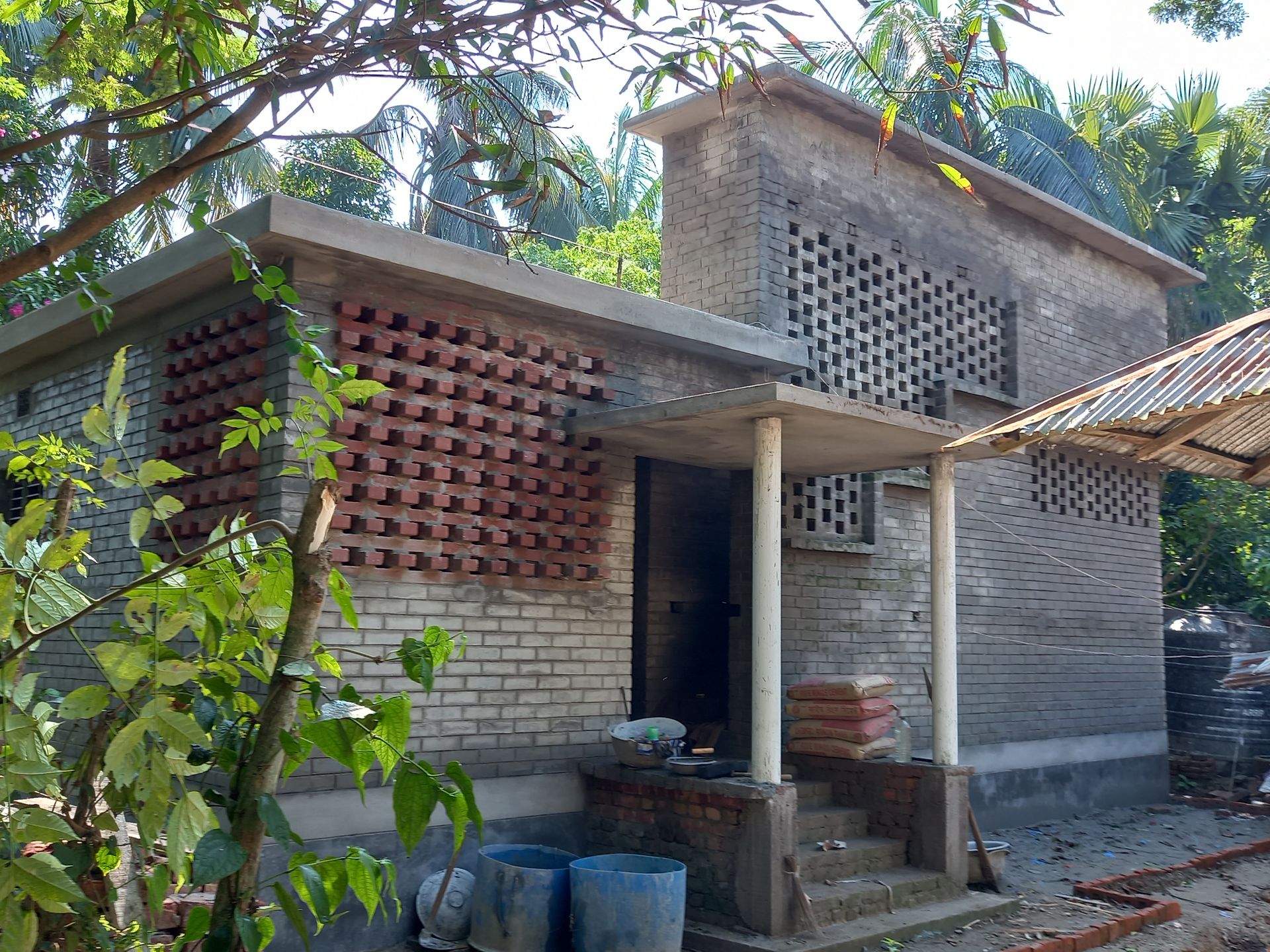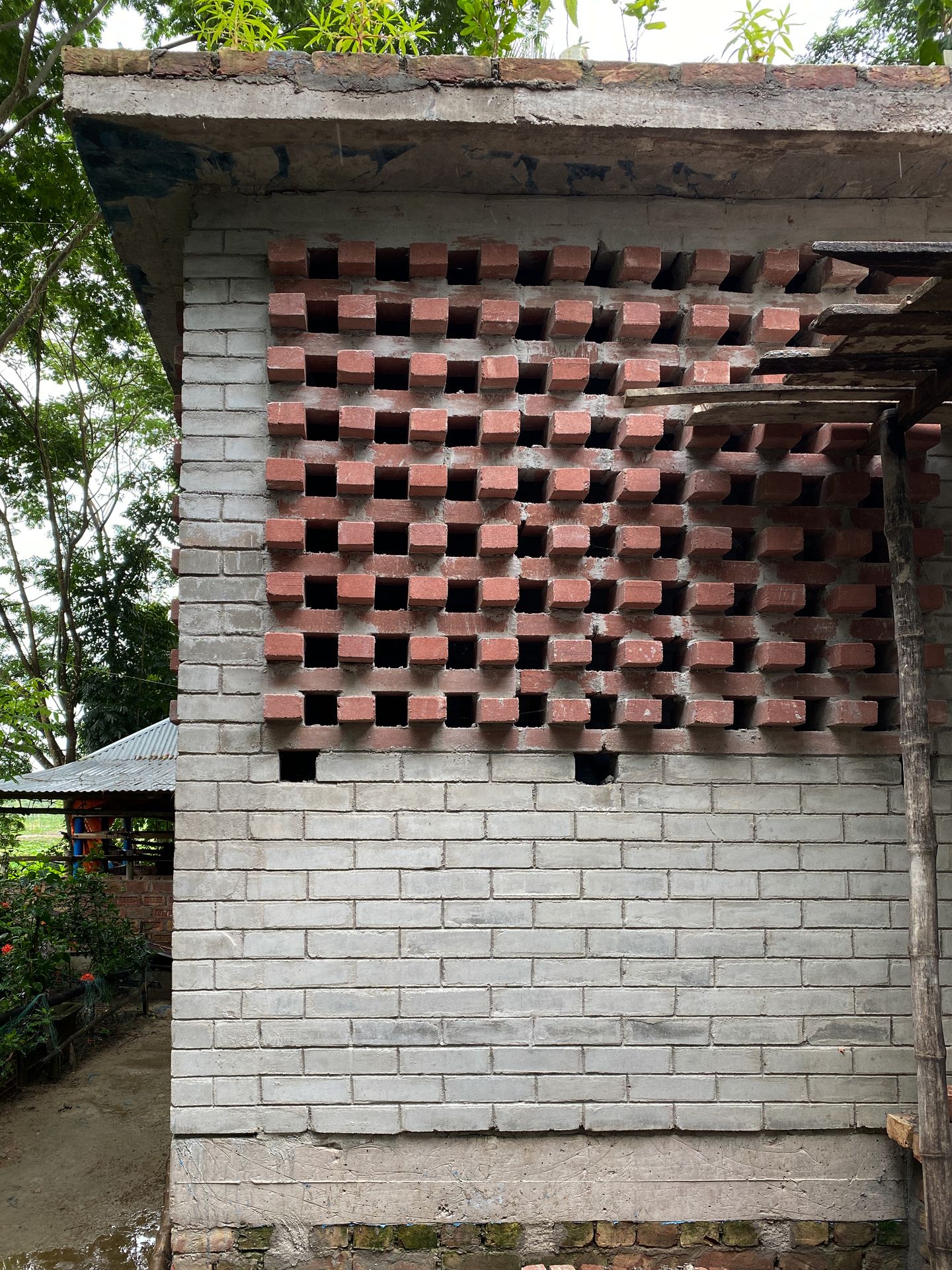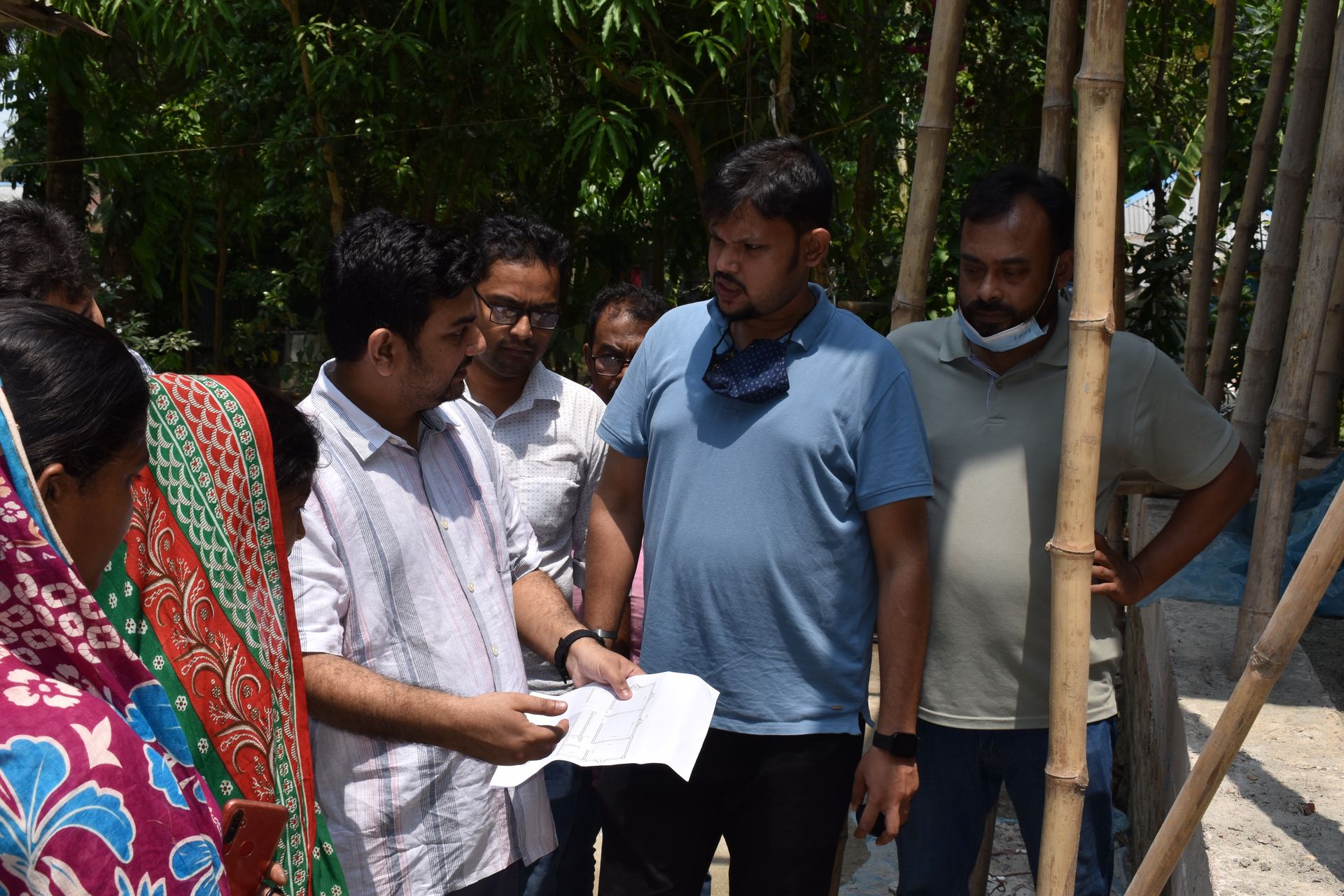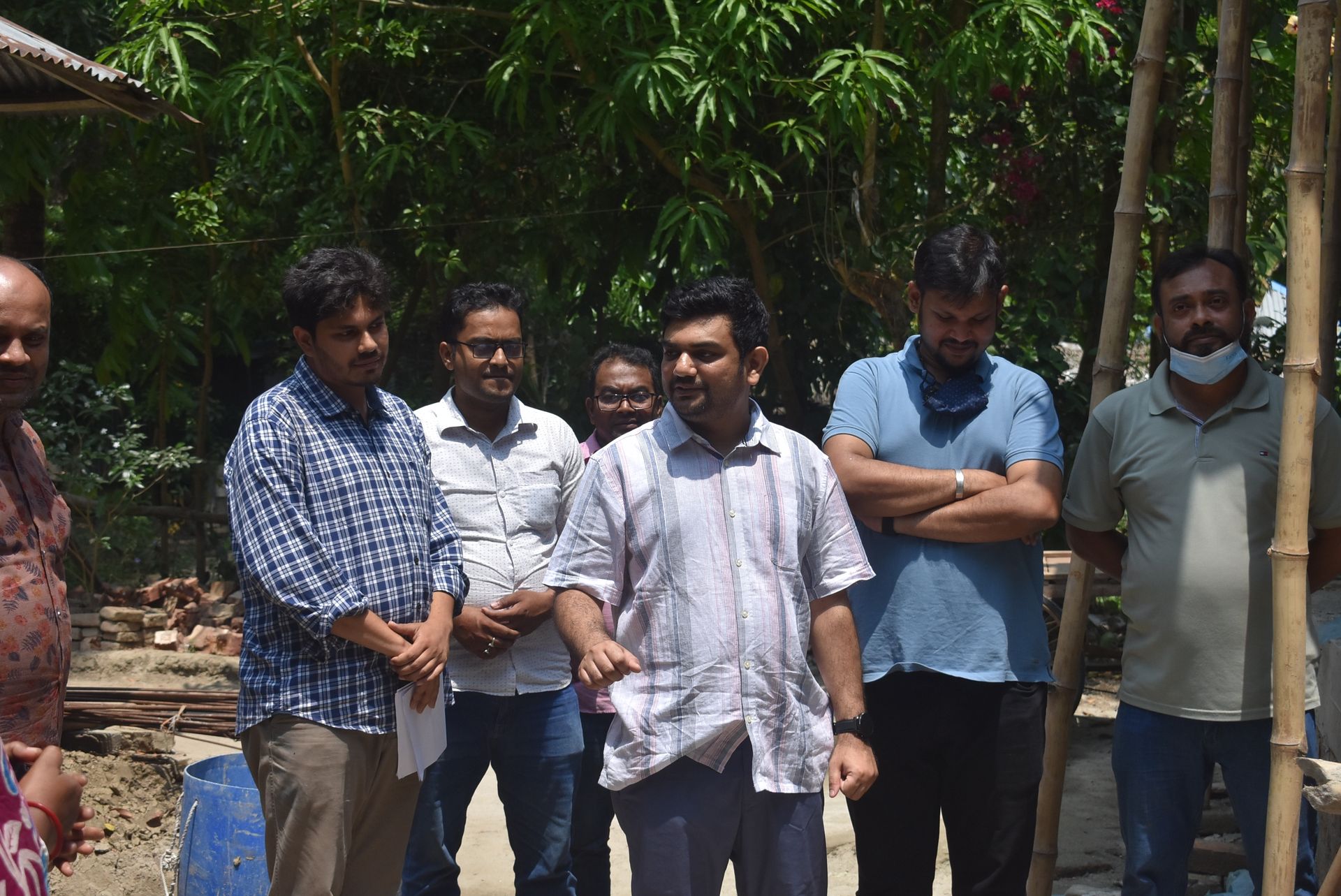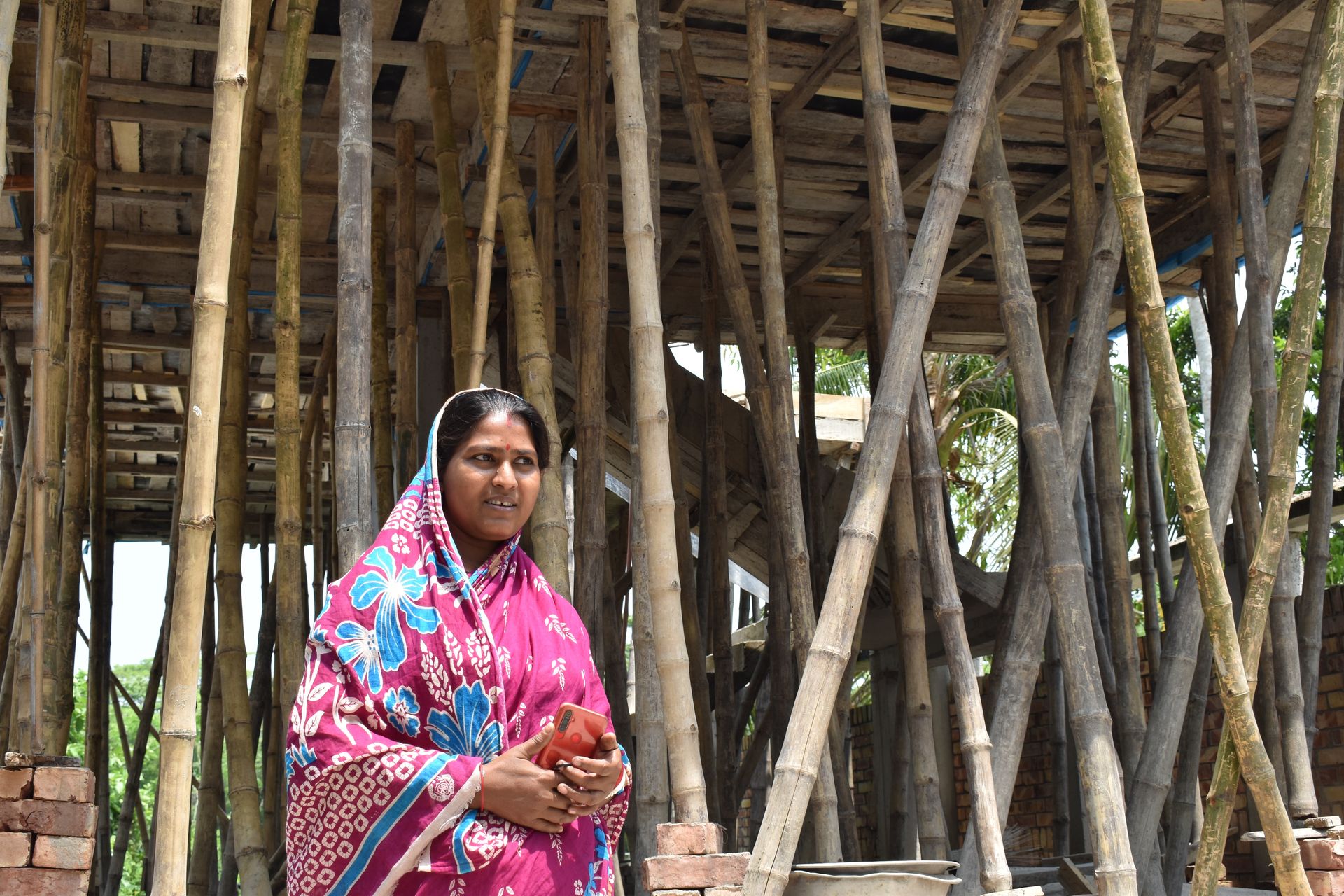Resilient Housing Program
Our Resilient Housing Program targets vulnerable families in cyclone-prone areas, specifically in the Patuakhali and Bagerhat districts of Bangladesh. This pilot initiative aims to encourage the use of eco-friendly construction materials, such as cement blocks, in coastal communities. The program adopts a participatory process, involving local users, builders, and consultants from CODEC to ensure stakeholder engagement.
The main innovation of the program is the introduction of cement blocks as a sustainable and cost-effective alternative to traditional bricks for affordable housing in coastal Bangladesh. By promoting cement blocks, the initiative offers a more durable and environmentally friendly building solution that reduces the environmental impact of brick production. Cement blocks not only withstand cyclonic events better but also lower carbon emissions and environmental degradation associated with brick kilns. This approach minimizes long-term maintenance costs and aligns with modern ecological principles.
The program also aims to build trust between communities and the new material. CODEC's Microfinance supports local entrepreneurs in producing these cement blocks and related materials. By empowering micro-entrepreneurs and engaging marginalized artisans, the initiative fosters an inclusive approach to affordable housing solutions. Community members actively contribute to the design, production, and marketing of sustainable housing materials, leveraging local skills and resources, and fostering a sense of ownership and investment in the project's success.
The focus on resilient housing, with local users and builders involved in the design process, ensures that housing solutions are tailored to the community's specific needs and preferences, minimizing waste and ensuring efficient resource utilization and cost-effectiveness. The Resilient Housing Program recognizes housing as a basic right and aims to make it sustainable and affordable for low-income coastal communities. The participatory process enables users and builders to collaboratively develop solutions with the design team, ensuring a standard living environment and accommodating sustainable expansion. This collaborative approach aligns with modern concepts of user-centred design, locally-led adaptation, and sustainable development.
